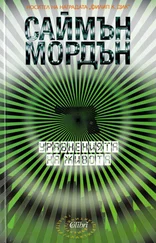“They used a nuke, Sam.”
“Yeah. Finally, they’ve made a mistake. Your lot.” And he shrugged. “Okay, not your lot anymore. They’re good. A couple of times, we’ve had luck on our side, but this is the first time they’ve really screwed up. We had cameras at ground zero. We’ve got video of two reporters being shot, and if there’s one thing even the most partisan journo hates, it’s someone deliberately killing another journo. We’ve got global sympathy.”
“I don’t want sympathy,” she said baldly. “I want revenge.”
“Oh, we’ll get it all right. But it might not look how you want it to.” He glanced across at her with his one eye. “You prepared for that?”
Unperturbed by his empty socket, she looked back. “What are you going to do?”
He scratched at his nose and smiled slyly. “Something… wonderful.”
Aphone rang. It was an ancient phone still attached to a copper wire, and no matter the degree of sophistication that was plugged into the back of it, the phone itself hadn’t been changed for thirty years.
It had been originally installed to prevent wars. That was its sole purpose and, so far as the potential combatants were concerned, it had worked. Until now.
A man—a junior functionary whose job description was to make sure important people had everything they needed—was alone in the room when the phone rang. He had a brief moment of panic, and he shouted for help, before recovering enough to pick the receiver up and hold it to his ear.
“Hello?”
“Yeah, you’re not President Mackensie.”
“No sir. My name’s Armstrong. Joe Armstrong.”
“Well, Armstrongjoearmstrong, I’m Samuil Petrovitch, and your boss has just nuked my city. To say I’m just a little cross about that would be an understatement, but I’m kind of assuming that your president couldn’t give a fuck about that. Unfortunately for him, I’ve made it my job to make him care. So, Joe—you’re a pretty straight-up sort of guy, yeah? I can trust you to pass on a message. Can you do that for me, Joe?”
“Yes.” Armstrong was having trouble breathing. “I can do that.”
“The message is this: I want to talk to Mackensie, and I won’t go away until I do.”
Petrovitch heard the handset being placed on the table. He had no doubt that it was a solid slab of antique wood, highly polished and clutter-free.
It was quiet for a few moments, then he could hear voices approaching. Armstrong was one, and there were others. They seemed anxious.
The phone was picked up again, and an older voice spoke. It was one that was used to both issuing and obeying orders.
“This is Admiral Malcolm Arendt of the United States Navy. Who is this, and how did you access this system?”
“Didn’t Joe say? I had such high hopes for him, too. Or is the problem with you, Admiral? Maybe Joe did say, and you didn’t believe him because you thought my atoms were floating around in the atmosphere somewhere over France.”
A hand muffled the mouthpiece, and the admiral called out to the rest of his audience. “It’s Petrovitch.”
“That’s what I’ve been telling you. Now, you’re not Mackensie either. They’re all in the Situation Room, right? You can patch this call through—I’d do it myself, but why should I do all the work?”
“President Mackensie does not talk to terrorists.”
“Can I remind you who just toppled Nelson’s Column? It’s lying there across Trafalgar Square, and Nelson’s head has come off. That picture is currently running on every news network on the planet. Even your own. If I can stomach talking to Mackensie, he can have the grace to sit his scrawny arse down and talk to me.”
“President Mackensie does not talk to terrorists. I do not talk to terrorists. No one in this administration talks to terrorists.”
“Fine. You don’t want to know how your country dies. I can understand that.”
“I… what?”
“Not only did you not get me, you didn’t get Michael,” said Petrovitch.
“Michael?”
“The AI. It has a name: Michael. That’s who you’ve been trying to kill; the same Michael that the Vatican are about to declare to be alive. Not that you care about that any more than you did when you thought it was just a machine. Sorry, I’ve distracted myself. Me and Michael: between us, we’ve decided that you’re just too dangerous to have around anymore, and the world would be a better place without a bunch of nuclear-armed fundamentalist xenophobic psychopaths. Sorry it had to turn out this way, but hey.”
“You’re threatening to destroy the United States of America. You and whose army?”
“Yeah. The last time someone said that to me, I surprised them by turning up with, you know, a whole army. Prepare for the New Machine Jihad, Admiral.”
“We can deal with the AI, Petrovitch,” said Arendt. “We can deal with you, too. Now get off this line.”
“Just one more thing, Admiral. If you isolate your network now, the virus routines we’ve installed across your country’s infrastructure will no longer be able to talk to Michael. If that happens, they’ll turn off every computer they’re hiding in, and I’m sure you know just how difficult it is to get these things restarted once they go down. You’ll lose everything, for a very long time. You’ll be reduced to the nickels and dimes in your pocket.”
“Anarchy. You’re talking about Anarchy.”
“Modified. So hold off on your kill switch. Of course, you’ll want to check if I’m bluffing: but I did the same thing to the Freezone earlier on today, and if you can find anyone who’ll still talk to you after what you’ve done, they’ll confirm the sudden and total shutdown. I had an AI to help me clear up my mess, though, so I imagine your pain will last an awful lot longer than ours did. Years, probably. How are the NSA doing at clearing up the last outbreak, by the way?”
There seemed to be a lot of people running in the background, running and talking hurriedly over phones. Of course, they were trying to trace him: that exercise was doomed to failure, but he’d have been disappointed if they hadn’t tried. Some of the conversations were about activating assets within the Metrozone: again, the likelihood he’d accounted for every CIA agent didn’t come with a cast-iron guarantee.
Some of the discussions were more technical—how he had hijacked the satellites involved and how they could take them back—but most of them were just shouting commands to check every piece of software anything important depended on.
“What do you want, Petrovitch?” growled Arendt.
“I told Joe, and now I’m telling you. I want to talk to Mackensie, and, while I’m on, the rest of the National Security Council. Right now, you have a choice: we can go to war, or we can talk.”
Admiral Arendt gave his considered response. “We don’t talk to terrorists.”
“Is that your final offer? You don’t even want to tell Mackensie what I told you? Let him decide?”
The phone went dead.
Petrovitch gave it a few moments, and rang again.
It was answered immediately. It was neither young Armstrong, nor old Arendt. “Brandon Harris.”
The call had been taken in the Situation Room. Because Michael had already hacked the cameras attached to all the workstations around the periphery of the room, and the one aimed down the length of the long central table, Petrovitch could finally see his adversary.
The president was at the far end, his thin white skin barely covering the outline of his skull. He leaned back in his leather chair, almost amused by the tension around him.
“ Dobre den, Secretary Harris. Have I got your attention yet?”
Читать дальше

![Саймон Морден - Билет в никуда [litres]](/books/388091/sajmon-morden-bilet-v-nikuda-litres-thumb.webp)
![Саймон Морден - Билет в один конец [litres]](/books/395533/sajmon-morden-bilet-v-odin-konec-litres-thumb.webp)









